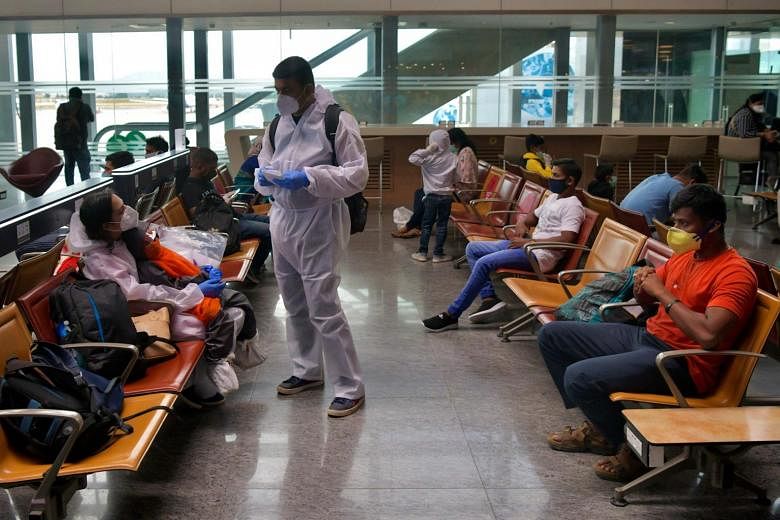NEW DELHI - India has cautiously opened up limited air travel with a clutch of countries, including the US and United Arab Emirates.
American carrier United Airlines will have 18 flights from Newark and San Francisco to Delhi from Friday (July 17) till July 31 following an air bubble agreement between India and the US.
The flights follow an accusation by the US that India was unfairly operating paid flights under its repatriation programme amid the Covid-19 pandemic.
National carrier Air India, which has conducted the repatriation flights, will now be allowed to operate separate commercial flights based on demand with schedules that have yet to be finalised.
An air bubble agreement is a negotiated deal between two countries, chalking out restrictions and regulations under which flights by airlines of two countries can operate.
Similar air bubble agreements have been worked out with the UAE, France, Germany and negotiations with the UK are in the final stages. Flights to the UAE began on July 12.
Air France will operate 28 flights to Delhi/Mumbai and Bengaluru from Saturday (July 19) to Aug 1, said the civil aviation ministry.
"Until international civil aviation can reclaim its pre-Covid situation in terms of numbers, the answer will lie in bilateral air bubble agreements which will carry as many people as possible under defined conditions," Civil Aviation Minister Hardeep Singh Puri told a press conference on Thursday.
He said that apart from a valid visa, passengers would require additional government approval to travel under these agreements and that the arrangements would be reviewed at the end of two weeks.
"Because many countries are still imposing entry restrictions, as are we, it's not that anyone can travel from anywhere to anywhere. You need permission. These are in the initial experimental stage. We are operating under strict standard operating procedures."
He noted that these are "not normal commercial operations" and that the number of passengers also depend on the capacity for quarantine.
The civil aviation ministry has said domestic landing and quarantine rules will apply.
At Delhi airport, for instance, international arrivals have to undergo a seven-day quarantine at a designated facility and a further seven days at home.
India cancelled all international flights two days before a stringent lockdown on March 25, which also stopped travel within the country. The lockdown has since been eased in stages. All restrictions on cross country movement have been lifted but different cities and areas have continued to maintained restrictions to control the spread of the virus.
Domestic flights too have resumed but Covid-19 fears have kept people from travelling. Flights are operating at barely one third capacity since resumption of domestic flights.
The cities worst affected by the pandemic such as Delhi, Mumbai and Bengaluru are also among the country's aviation hubs, further complicating resumption of aviation activities.
"The fact is that they have to open up international travel and they are doing it very cautiously. They are taking baby steps and testing. This is a prelude to complete opening," said Mr Rajan Mehra, chief executive officer of Club One Air and former India head of Qatar Airways.
"Things are so uncertain. But this is a positive step. They need to keep moving forward instead of looking back."
India has been operating repatriation flights since May 7 to allow its citizens stranded overseas to return home.
More than 680,000 people have taken these repatriation flights, including from Singapore.












